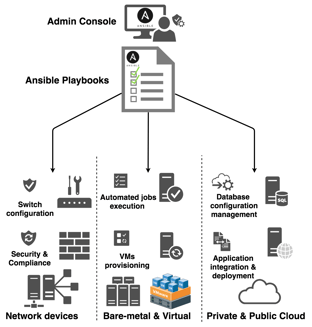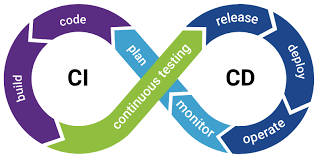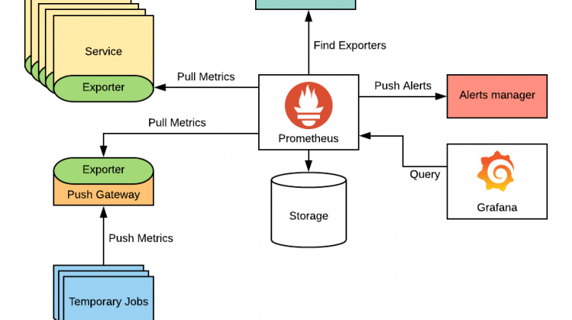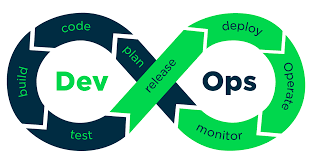There’s lots of talk about software engineers and the demand for software talent, but there are thousands of open jobs in DevOps on any given day in the United States. It’s a high-demand, hard-to-hire role that honestly, is not the most ‘sexy’ tech job out there, but one that is well paid and with strong career growth.
So what is a DevOps Engineer, and what do they do? Let’s dive in.
The DevOps Industry Right Now
According to Zippia, “Projected job growth for DevOps engineers is 21% from 2018-2028”. The industry is experiencing significant growth in recent years as organizations have recognized the value of DevOps practices in improving software delivery, enhancing collaboration, and increasing overall operational efficiency. In order to stay competitive in the market, companies are starting to adopt DevOps practices and hire skilled DevOps engineers, increasing the need for professionals in this area. Some of the key factors contributing to the growth of the DevOps industry are:
- Increased adoption:
The adoption of DevOps practices has been on the rise as more organizations strive to deliver software faster, more reliably, and with higher quality. - Cloud computing:
Cloud platforms provide the scalability, flexibility, and automation capabilities that align well with DevOps practices. - Continuous integration and deployment:
CI/CD tools and practices are at the core of DevOps, and their increasing popularity contributes to the growth of the industry since organizations are realizing the benefits of automating build, test, and deployment processes to enable frequent and reliable releases. - Containerization and orchestration:
Containerization technologies like Docker enable consistency across different environments and container orchestration platforms like Kubernetes have revolutionized the way applications are packaged, deployed, and managed. - DevOps tooling ecosystem:
The tooling landscape has expanded rapidly, providing a wide range of tools and platforms to support various aspects of the software delivery pipeline from source code management and build automation to infrastructure provisioning and monitoring. - Shift-left testing and security:
The shift-left approach, where testing and security measures are implemented early in the development process, helps identify and address issues earlier, resulting in higher-quality software. - DevSecOps:
Organizations recognize the importance of incorporating security measures seamlessly into the software delivery process. DevSecOps practices ensure that security is not an afterthought and promote a holistic approach to software development and operations. - Cultural shift:
The recognition that collaboration, communication, and shared responsibility are key to success has led to the cultural adoption of DevOps principles.
Important Statistics in the DevOps Industry:
- According to a report by MarketsandMarkets, the DevOps market was valued at around $3.42 billion in 2018 and was projected to reach $10.31 billion by 2023, with a compound annual growth rate (CAGR) of 24.7% during the forecast period.
- In 2019, LinkedIn ranked DevOps Engineer as the second-most promising job in the United States based on factors like salary, career advancement, and job openings.
Organizations across many industries have been investing in DevOps to drive digital transformation and improve their software delivery capabilities. This includes investing in tools, training, and talent acquisition to build DevOps teams and establish DevOps practices within their organizations.

What is DevOps?
Let’s start with a definition: according to GitLab, “DevOps combines development and operations to increase the efficiency, speed, and security of software development and delivery compared to traditional processes.” DevOps is a multi-step process to improve company operations and deliver an application more efficiently at every stage of the software development lifecycle. It’s a crucial focus for companies as well as those looking for a solid career.
It’s important to note that a DevOps Engineer is not the same as a Cloud Solutions Engineer, where you build solutions for projects/clients using existing cloud tools or technologies.
The programming languages that DevOps Engineers most commonly use are:
- Python: widely used for scripting, automation, and infrastructure management tasks, also has good libraries and frameworks for DevOps
- Shell scripting: particularly using Bash, for writing automation scripts and managing command-line interactions in a Unix/Linux environment
- Ruby: good for simplicity and for tasks like configuration management (e.g., using Chef or Puppet) and scripting.
- Go: gaining popularity for its performance, concurrency, and ease of deployment
Some cloud tools require Java, and odd ones require functional programming languages, but if you have a good programming base, you can probably learn whatever else you need.
The tools that DevOps Engineers most commonly use are:
- Configuration Management:
Tools like Ansible, Puppet, and Chef are used to automate and manage the configuration of servers and infrastructure, ensuring consistency and reproducibility.

- Infrastructure as Code (IaC): Tools such as Terraform, AWS CloudFormation, and Azure Resource Manager enable the provisioning and management of infrastructure using declarative code, allowing for versioning, repeatability, and scalability.
- Continuous Integration and Deployment (CI/CD): Tools like Jenkins, GitLab CI/CD, CircleCI, and Travis CI are used to automate the build, test, and deployment processes, enabling continuous integration and deployment of applications.

- Containerization and Orchestration: Docker is widely used for containerization, allowing applications to be packaged and run consistently across different environments. Kubernetes is a popular container orchestration platform that automates the deployment, scaling, and management of containerized applications.
- Version Control Systems: Git is the most commonly used distributed version control system. It enables collaborative development, versioning of code, and efficient code management.
- Monitoring and Logging: Tools like Prometheus, Grafana, ELK stack (Elasticsearch, Logstash, Kibana), and Splunk are used for monitoring and collecting metrics, logs, and visualizing system performance.

- Cloud Platforms: DevOps professionals frequently work with cloud platforms like Amazon Web Services (AWS), Microsoft Azure, and Google Cloud Platform (GCP). They utilize various services and tools provided by these platforms to manage and deploy applications in the cloud.
- Scripting and Automation: Apart from the languages mentioned above, DevOps Engineers use various scripting languages, including PowerShell for Windows environments, to automate tasks, configure systems, and interact with APIs.
DevOps is a set of practices and cultural philosophies that aim to improve collaboration and communication between development (Dev) and operations (Ops) teams. It is a combination of software development (Dev) and IT operations (Ops) principles, focused on breaking down silos and fostering a collaborative and efficient approach to software delivery and deployment.
The core principles of DevOps include:
- Continuous Integration and Continuous Deployment (CI/CD): CI/CD is a key aspect of DevOps, focusing on automating the software delivery pipeline. Continuous Integration involves regularly integrating code changes into a shared repository, followed by automated builds and tests. Continuous Deployment automates the deployment of applications to production environments, ensuring fast and reliable releases.
- Infrastructure as Code (IaC): Infrastructure as Code treats infrastructure provisioning, configuration, and management as software artifacts. Infrastructure is defined and managed through code, enabling reproducibility, scalability, and easier automation.
- Automation: Automation is a fundamental aspect of DevOps. Manual, repetitive tasks are automated to improve efficiency, reduce errors, and free up time for more value-added work. Automation spans across development, testing, deployment, and operations processes.

- Monitoring and Feedback Loops: Monitoring tools and techniques are used to gain insights into the performance, availability, and reliability of systems. Feedback loops provide data and information that help teams identify and address issues promptly, continuously improving the quality of software and infrastructure.
A Day in the Life of a DevOps Engineer
A typical day in the life of a DevOps Engineer can vary depending on the specific company, project, and team dynamics. However, here’s an overview of what a DevOps Engineer might experience during their workday:
- Morning planning: Review emails, messages, and notifications, plan & prioritize tasks
- Morning Standup: Review current projects, blockers, etc.
- Infrastructure management: provision and configure servers, manage cloud resources, set up networking and security configurations
- Continuous integration and deployment (CI/CD): set up and maintain CI/CD processes, ensure code quality, and automate the build, test, and deployment of applications. Troubleshoot any issues that arise in the CI/CD pipeline and optimize it for efficiency and reliability.
- Monitoring and performance optimization: set up monitoring systems, configure alerts, and analyze logs and metrics to identify and resolve issues.
- Security and compliance: implement security best practices, perform vulnerability assessments, and apply necessary patches and updates.
- Troubleshooting and incident response: investigate incidents, perform root cause analysis, and implement corrective measures.
- Automation and scripting: write scripts, develop automation workflows, and use tools to automate repetitive tasks, deployments, and infrastructure management.
- Documentation and knowledge sharing: Document processes, configurations, incidents, etc.
It's important to note that the tasks and responsibilities of a DevOps Engineer can vary based on the organization, project requirements, and team structure. The above list provides a general overview, but specific roles may have additional or different tasks depending on the context.
In relation to many industries, it’s important to consider the agile pipelines of DevOps engineers in their day-to-day work life. Through this, the agile nature enables engineers to push to pipeline, autotest, review, and go to production. By understanding this flow and storyline of start to finish, other engineers and team members can review their work, and check for errors. It provides a simple and seamless approach to look back at the work and understand the errors and fix them in an efficient manner. Through the agile methodology, storyboards are used commonly to ensure engineers are able to fluently read and understand the flow of another engineers’ finished product. According to IIBA, “Storyboarding is used to describe a task, scenario, or story in terms of how stakeholders interact with the solution.By creating a storyboard, teams can quickly identify potential issues and risks, and create solutions that are tailored to the needs of the customer. Storyboarding also helps to ensure that all stakeholders are involved in the process, and that all requirements are met.” The tabular and stage view of these storyboards helps everyone stay on the same page during the production process if there are multiple people working on one project.
Check out our next blog for more on how to become a DevOps Engineer!


